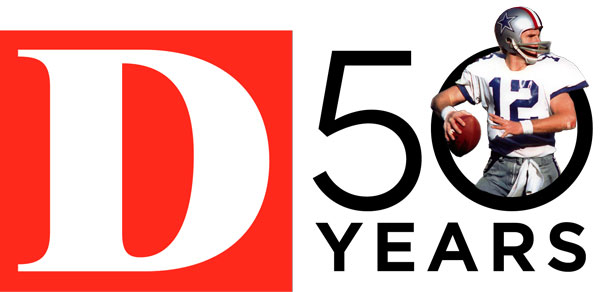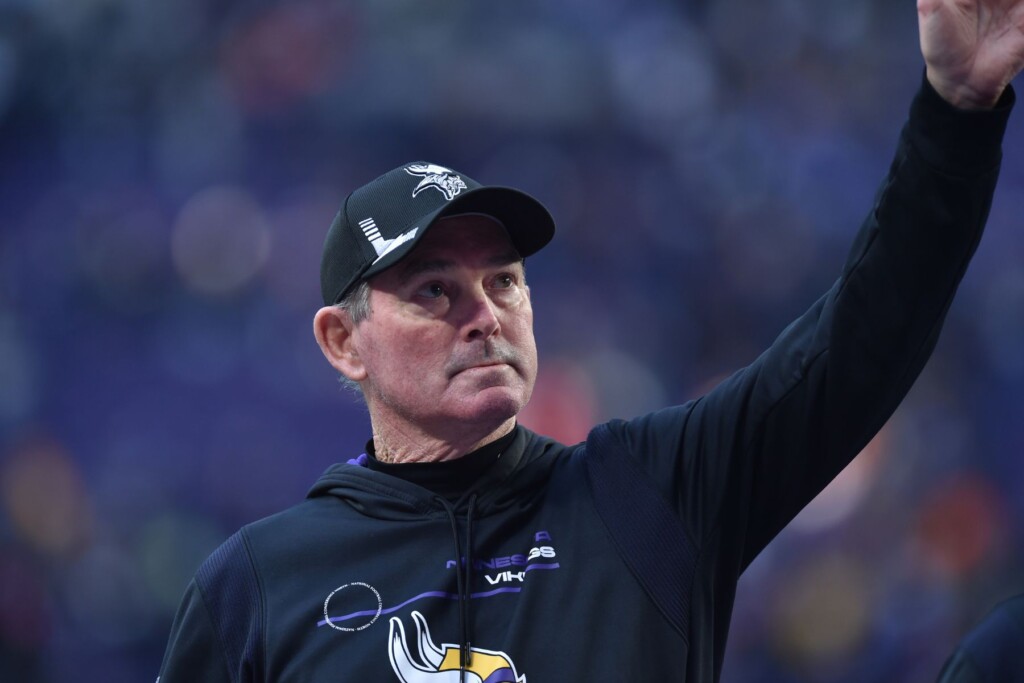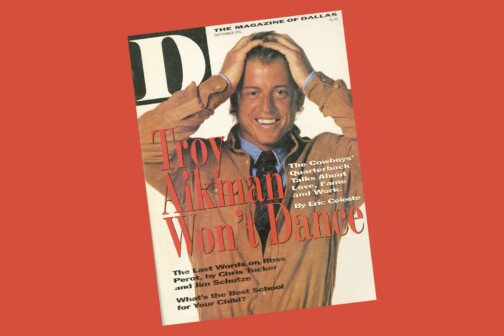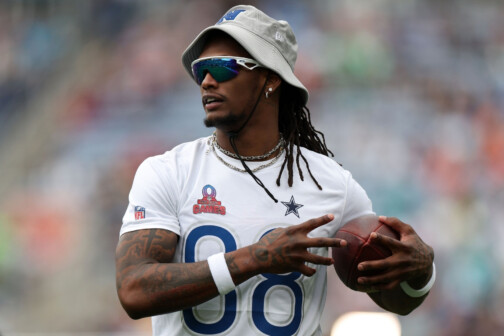A change was inevitable, paradoxically, for a couple of reasons. The Cowboys had just won 12 games for the third straight season. They also had exited the postseason prior to the conference championship game for the third consecutive season, extending a streak that dates to 1996. They fielded a top-10 defense for the third straight season, only to have said defense fail them in the playoffs for the third year in a row. Defensive coordinator Dan Quinn absorbed much of the blame for the postseason failure, which did not stop him from again becoming a hot name in the head coaching carousel.
This time, Quinn left. Now the coach of the Washington Commanders, he left a void in Dallas that has been filled by a familiar name. Former Cowboys defensive coordinator Mike Zimmer is again Cowboys defensive coordinator Mike Zimmer.
Suffice to say, this is going to be different. Despite the somewhat imposing figure he cuts, Quinn always seemed like a “players’ coach.” I don’t mean to imply he wasn’t demanding of his players; I’ve heard Micah Parsons recount several instances in which Quinn brought him in to harp on a few negative reps in practice, an approach that Parsons appreciated. At the same time, it’s hard not to have consumed the NFL for the past two decades and not immediately realize that there is a distinct difference between Quinn and Zimmer.
For lack of a better term, Zimmer is a known hard ass. There is a reason Bill Parcells retained him on his staff when he became the coach in 2003. And it wasn’t just his ability to quickly learn the intricacies of Parcells’ 3-4 defense as opposed to the 4-3 base Zimmer was acclimated to calling. Zimmer and Parcells were kindred spirits: they are obsessed with winning football games, they are going to give players uncomfortable truths, and there will be many days when their players can’t stand them. But in the end, those who buy in will know their leader cares about them deeply.
The Zimmer hire is fascinating to me because it cuts to the heart of whether this style of coaching is still viable. I fight the urge to become an old man yelling at a cloud every day, but I must admit, I find it odd that Parsons had Packers quarterback Jordan Love on his podcast last week and they spent an hour breaking down how the Packers beat the Cowboys. Less than three weeks after the game, Parsons was listening to an opposing player tell him all of the reasons the Dallas defense couldn’t keep up. My gut tells me that this isn’t something Zimmer would love.
I could be wrong about this. It isn’t like Zimmer has been out of the league for a decade. Jerry Jones isn’t approaching him on a farm asking him to come back for “one more job,” like some sort of action movie. Zimmer was a head coach in the league three years ago. And once the Vikings fired him after seven years at the helm, Zimmer kept busy by working in the college game on Deion Sanders’ staff, first with Jackson State and then with Colorado. For all of the flash and sizzle that surrounds Sanders, he is very much an old-school coach, so it makes sense he wanted Zimmer around. (The two have a history, too, having spent six years together in Dallas in the late ’90s when Zimmer was a defensive assistant.) We’ve seen a constant filtering up schematically from the lower ranks to the pros, and Zimmer has used his time away from the NFL getting closer to football’s cutting edge.
So when evaluating this hire, we are really assessing it on two tracks, both probably ageist. The first is how will Zimmer, 68 years old in June, relate to and work with his relatively young defensive roster. The second is how will his base schematic philosophies work in 2024 and beyond. To answer the latter question, I opted for standing on the shoulders of giants. The first is the indispensable Cowboys follow Daniel Houston. He has presented some research over the last week that shows Zimmer’s defenses have been highly effective against the Shanahan coaching tree. Clearly, this has been a problem for the Cowboys, as they have been eliminated by Kyle Shanahan and Matt LaFleur the last three years. They have also underperformed when facing other iterations of this offense in the regular season.
I asked Houston about this possible trend. “I’ve noticed that his defensive results are especially sound on third downs and other must-pass situations, which are often where Shanahan-tree playcallers separate from their peers,” he told me.
The argument is that Quinn’s defensive approach was largely predicated on forcing turnovers, which the Cowboys’ defense has been very successful in doing over the course of a season. But that high-variance approach ]doesn’t always pan out in a single-elimination situation. I’m very interested to see how Zimmer coaches a group of players who were essentially put together to run Quinn’s defense. Cornerbacks Trevon Diggs and DaRon Bland are both gamblers. Playing “big dime” with essentially six defensive backs is an approach tailored to getting your best cover players on the field. The problem is that leaves you with less willing, or capable, tacklers.
Houston told me his research indicates that Zimmer’s defense is much more capable of limiting yards after the catch than Quinn’s, which makes sense. If you are hunting for turnovers, you most likely will be out of position to shut down a play at six yards as opposed to 60.
The other expert I called in is Cody Alexander, who understands modern defense as well as anyone you could follow. His take on why Zimmer has been successful against these Shanahan offenses was this: 1) He’s not averse to running split-field coverage, will run Cover-2 and that helps with motions, and 2) He’s much more multiple and has a better blitz package. In Zimmer’s final season in Minnesota, his defense deployed a Cover-2 look at the sixth-highest rate in the NFL.
That all might sound a bit technical, so I will attempt to distill it down. Despite his old-school demeanor, Zimmer has been a bit ahead of the curve on what his hot, young counterparts are trying to do on the other side of the ball. He doesn’t have a cool haircut, and sometimes he has to wear an eyepatch. But the data and the, um, eye test both indicate that Zimmer is still very much embedded in the evolution of how to stop a modern offense.
It’s easy to view this as a Jones family legacy hire. We’ve known for some time the Cowboys are not the type of organization to hire an unproven upstart as coordinator or head coach (save for perhaps Jason Garrett, who had three years as offensive coordinator under his belt and had a history with the organization). They want proven, because proven is safe.
Many times, that means going to the good ol’ boys club and bringing in someone past his prime. I’m cautiously optimistic that even though Zimmer might appear that way on first glance, he is fully capable of maintaining or perhaps improving the production of this defense. Not all returns are alike. Not all sexagenarians are, either.
Author







